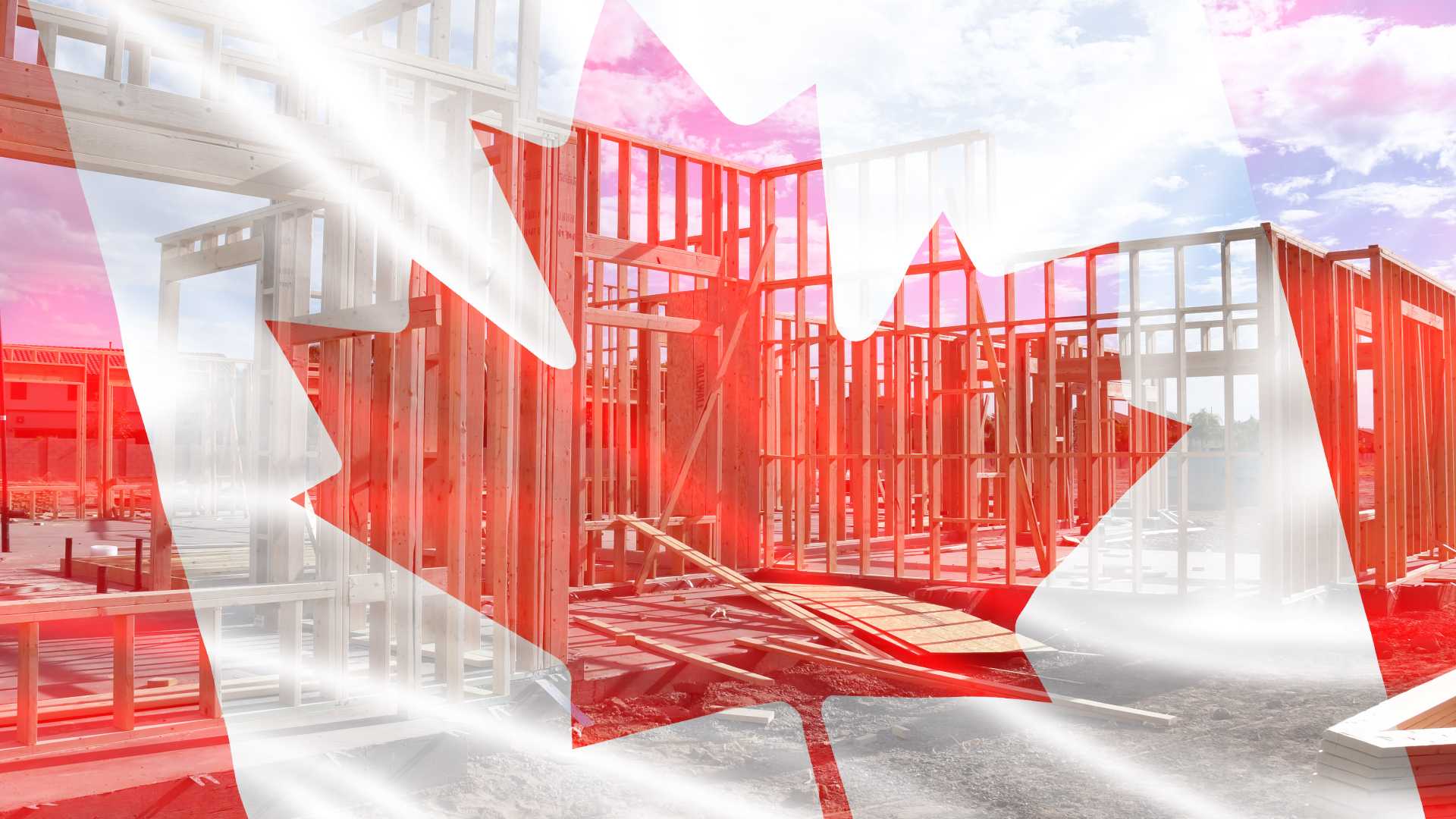on
BY SIMONE J. SMITH
In the bustling streets of Toronto, where skyscrapers scrape the sky and dreams find their footing, a harsh reality looms large: the city’s housing crisis has reached staggering proportions. Across Canada, the echoes of this crisis reverberate, painting a sobering picture of a nation grappling with affordability woes and homelessness struggles.
Look around. Just a few years ago, you wouldn’t see this many people on the streets like that. A series of makeshift shelters, pieced together from cardboard and tattered blankets, line the sidewalks, offering shelter to the city’s homeless. It’s like a whole new neighborhood popping up overnight, and it’s not just the shelters. Think about all the times you come off the highway and see people begging for change.
When I can, I will offer what I have; I feel bad when I see their eyes downcast as they hold up cardboard signs, their desperation palpable even from the confines of my car. It’s heartbreaking. It’s easy to turn a blind eye when it’s not right in front of you, but we can’t ignore it. These are real people, with real struggles. As a newspaper, we have to continue to raise awareness. The more people know, the more we can do to help.
What is truly disturbing are the alarming statistics emanating from Toronto that truly punctuate the urgency of the situation. As we delve into the depths of this crisis, it becomes abundantly clear that understanding these numbers isn’t just a matter of curiosity—it’s a vital step towards crafting solutions and offering hope to those caught in the grip of uncertainty.
The gravity of Canada’s housing crisis, particularly the alarming rise in homelessness, casts a shadow over the nation’s social fabric and moral conscience. With each passing day, more individuals and families find themselves without stable shelter, confronting the harsh reality of life on the streets. Behind these stark statistics lie stories of human struggle, vulnerability, and despair, as people grapple with the fundamental need for a safe and dignified place to call home. The crisis not only undermines the basic human right to housing, but also exacerbates existing inequalities, pushing marginalized communities further to the margins.
This week, I have to share with you some very sobering stats on the state of Canada’s housing crisis, and especially alarming numbers coming out of Toronto after eight years of having Justin Trudeau as our Prime Minister.
As of October 2023, Toronto was sheltering 10,700 people and turning away approximately 275 others on a daily basis. Gord Tanner, the city’s Director of homelessness initiatives shared, “About 40% of the people in shelters are refugee claimants.”
There are a growing number of homeless people turning to ERs for shelter and warmth in Ontario. In Toronto hospitals specifically, those cold-weather ER visits by homeless people skyrocketed by 68%. The study (authored by Dr. Carolyn Snider) examined data that had been collected from hospitals across Ontario, documenting ER visits from the winter of 2018-19 through to last winter, ending March 31st, 2023.
City data shows the number of tents in ravines, parks and under bridges is more than double last spring’s count. To understand why camps have grown, Greg Cook — an outreach worker — says it’s as simple as looking at the numbers. “A rising number of people are losing the roofs over their heads, with 1,056 people entering shelters in February versus the 864 who moved out. An average of 158 people each day that month called to find a bed but were turned away. It’s a similar story month after month.”
In 2023, nearly two million Canadians accessed food banks and one million more Canadians are expected to use a food bank for the first time this year. This staggering demand is playing out at food banks and other food programs across the country. A report from Food Banks Canada found that with the cost-of-living skyrocketing, food bank usage rose to its highest level since the survey started in 1989. Anyone who works in any kind of food-security programming knows that things have gotten astonishingly worse.
What has the Canadian government been doing to handle this depressing situation? Well, the Liberals have promised to repurpose federal lands for housing multiple times, and they have not followed through, or delivered on this promise after nearly a decade. In 2015, the Liberal party promised that: “We will conduct an inventory of all available federal lands and buildings that could be repurposed and make some of these lands available at low cost for affordable housing.”
They also stated in the 2017 Liberal budget, “We are going to be making more federal lands available for the development of affordable housing.” Again, in the 2024 Budget “The federal government is conducting a rapid review of its entire federal lands portfolio to identify more land for housing.” Promises, promises, promises.
Okay, so what if you are not homeless; you work a great job, and make good money; how is life for the so-called average Canadian? According to the RBC Housing Affordability Report, in Toronto, a household earning a median income needed to spend 84.8% of their income to cover the costs of owning an average home at market price. This metric has “Reached its worst level ever.” Nationally, it now takes 63.5% of income to buy an average priced home compared to 2015 when the same measure was 39.3%.
According to the Canadian Real Estate Association, the benchmark price of a home in Greater Toronto was $1,089,800 in February 2024, compared to $601,800 in October 2015. According to National Bank, it now takes 25 years to save for a down payment in Toronto. RBC reports show that housing affordability is at a historic low. Just 26% can afford a single-family home, down from 40% four years ago.
A new study from Zoocasa shows a major gap in housing affordability compared to the United States. Toronto and Dallas have nearly identical median incomes however when comparing the median home price and maximum affordability, “In Toronto, the gap more than triples that of Dallas. Households earning the median income in Toronto can afford homes costing around $355,892, which is $362,627 less than the median home price.”
Paying rent; life isn’t easy for you either. According to Ratehub.ca, the income required to purchase a home in Toronto rose by $11,100 in 2023, to a total of $218,100. According to Rentseeker.ca, the average two-bedroom asking rent in Toronto was $1,288 in the Fall of 2015, compared to $2,671 today, an increase of 107%. The February Rentals.ca report, showed that the average asking rents for residential properties hit a record high of $2,196 in January. This is an increase of 10% from just this time last year.
Thanks to our government’s inflationary, interest rate hiking policies, mortgage delinquencies are up 50%. The number of delinquencies are even more stark in Ontario and British Columbia, where they are up 135% and 62% respectively.
A new CIBC poll finds that entry to the housing market feels out of reach for the majority (76%) of Canadians who don’t own property.” (CIBC poll, April 11th, 2024).
Over the last ten years, average monthly mortgage payments increased in every city analyzed, with the majority of cities’ mortgage payments increasing by more than $1,000 and four cities increasing by more than $3,000 since 2013.
According to the Canadian Mortgage and Housing Corporation, Canada will have fewer housing starts in 2024 than in the previous year, and housing starts in 2025 – 2026 will still be lower than they were in 2020 – 2021. As a result of this, the CMHC has forecasted that demand will push housing prices “Beyond previous peak levels. This indicates a lack of short-term affordability improvement.”
As the problem deepens, it demands urgent and comprehensive action from policymakers, community leaders, and society at large to address root causes, expand affordable housing options, and provide support services for those in need. Only through concerted efforts and a shared commitment to compassion and social justice can Canada begin to alleviate the burden of homelessness and build a more inclusive and equitable society for all its citizens.
REFERENCES:
https://www.cbc.ca/news/business/mortgage-holders-bc-ontario-missing-payments-q4-equifax-1.7134085
https://rentals.ca/blog/rentals-ca-february-2023-rent-report
https://www.nbc.ca/content/dam/bnc/taux-analyses/analyse-eco/logement/housing-affordability.pdf
https://www.rentseeker.ca/average-rent-prices-canada
https://www.crea.ca/housing-market-stats/mls-home-price-index/hpi-tool/
https://www.ratehub.ca/blog/2023-marks-a-terrible-year-for-home-affordability/
New Rental Data Shows the Average Cost of Rents across Canada
How Much More Affordable is Housing in the US Compared to Canada?
Stay in the loop with exclusive news, stories, and insights—delivered straight to your inbox. No fluff, just real content that matters. Sign up today!
We, as humans are guaranteed certain things in life: stressors, taxes, bills and death are the first thoughts that pop to mind. It is not uncommon that many people find a hard time dealing with these daily life stressors, and at times will find themselves losing control over their lives. Simone Jennifer Smith’s great passion is using the gifts that have been given to her, to help educate her clients on how to live meaningful lives. The Hear to Help Team consists of powerfully motivated individuals, who like Simone, see that there is a need in this world; a need for real connection. As the founder and Director of Hear 2 Help, Simone leads a team that goes out into the community day to day, servicing families with their educational, legal and mental health needs.Her dedication shows in her Toronto Caribbean newspaper articles, and in her role as a host on the TCN TV Network.













